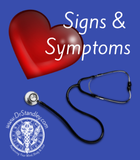
|

|
| Bach Flower Remedies |
Amino Acids A-Z |
Antioxidants A-Z |
Herbs A-Z |
Herbal Preps |
Minerals A-Z |
Vitamins A-Z |
|
|
 |
|
ALFALFA (Medicago stiva)
DESCRIPTION: Alfalfa is an awesome herb and great for quick action. It has a healthy supply of fat-soluble Vitamins D, E, A, K and plus B-complex. Alfalfa also has beta-carotene and the minerals potassium, magnesium and it is high in the minerals calcium and phosphorus. Alfalfa contains iron and essential enzymes. Plus, Alfalfa is rich in trace minerals. POTENTIAL SIDE EFFECTS: Alfalfa may help assimilate your nutrients and is often used as a digestive enzyme. It has the ability to keep belching and flatulence at a minimum, and helps to cleanse the body and blood. Therefore, we can call it a natural deodorizer. It may act as a mild diuretic by eliminating any retained water. It may help relieve bowel and urinary problems. It has also been used in alcohol and narcotic addictions. The enzyme capability of alfalfa has been said to help fight cancer. Alfalfa may also help with allergies and arthritis. It has been used as an appetite stimulant (not suppressant!) It has also been used in cases of bursitis, to reduce high cholesterol and cramping during the menses. Diabetics have been known to use alfalfa but check with your doctor first. It may help with mental and physical fatigue, as well as, high blood pressure and dental conditions. Alfalfa is amazing! I have found it helpful in patients with gout and nausea. The list seems endless. POTENTIAL SIDE EFFECTS: DO NOT take Alfalfa if you are pregnant. Alfalfa seeds contain stachydrine and homostachydrine, which promote menstruation and in some cases can lead to miscarriage. If you have an auto-immune disorder, DO NOT take alfalfa. Some Alfalfa tablets contain L-canavanine, which may exacerbate or induce Systemic Lupus Erythematosus (SLE) or other autoimmune disorders, even in those who have been in remission. Alfalfa can have an effect on cholesterol levels; therefore, check with your doctor first. Because Alfalfa contains saponins, this may reduce iron absorption causing an adverse effect on iron status. Saponins are thought to destroy red blood cells. If you are anemic or suspect you may be anemic, discontinue use and contact your physician immediately. Alfalfa may also cause diarrhea or upset stomach. If large quantities of Alfalfa are taken over a lengthy period of time, this could lead to pancytopenia, which is a blood disorder that causes deterioration of platelets responsible for blood clotting, and white blood cells, which are responsible for fighting infection. PARTS USED: The flowers and leaves. Some people have even used the root. GENERAL USAGE: Alfalfa may be used daily but check with your doctor first. Alfalfa has been known to aid in the following conditions: anemia, appetite stimulant, arthritis, blood purifier, diabetes, fatigue and mental exhaustion, hemorrhages, kidney problems, nausea, pituitary disorders, used as a tonic, and ulcers. DISCLAIMER **This web site's goal is to provide you with information that may be useful in attaining optimal health. Nothing in it is meant as a prescription or as medical advice. You should check with your physician before implementing any changes in your exercise or lifestyle habits, especially if you have physical problems or are taking medications of any kind. |
| 314.420.5099 |
| Questions regarding this site: webmaster@drstandley.com |
| Copyright 1999-2026: Dr. Loretta J. Standley - All Rights Reserved. |































